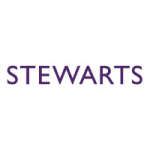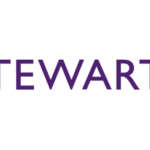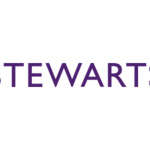Ferociter’s Augustine Kidisil on what to bear in mind when litigating with a view to enforcing in Ghana
There is hardly any point in expending money to litigate a claim only to get an empty judgment. Often, judgments requiring enforcement in foreign jurisdictions like Ghana result from disputes about payment rather than claims for specific performance or declaratory reliefs. Naturally, a plaintiff/claimant will invest money and resources in fighting its claims because it expects to secure payment at the end of the day.
Investing in litigation without assessing the chances of successful recovery will be particularly wasteful because, unlike arbitral awards, there is no universal convention on the recognition and enforcement of foreign judgments. The New York Convention on the Recognition and Enforcement of Foreign Arbitral Awards 1958 (the New York Convention) has a global reach and prescribes a simple regime for enforcing foreign arbitral awards. The situation is compounded in the case of Ghana because Ghana is not a party to the Hague Convention on Recognition and Enforcement of Foreign Judgments in Civil and Commercial Matters. So, foreign judgments may be recognised and enforced in Ghana under one of two regimes: at common law or under statute (based on reciprocity).
There are several strategic steps that in-house counsel and their external legal advisers can take throughout the process to maximise the chances of recovery of payment in enforcement proceedings in Ghana. We highlight three of those strategic steps here.
1. Begin with the end in mind: a little paranoia helps
Enforcement issues should be taken into consideration well before a dispute arises. While the obvious starting point is to ensure there is an enforceable obligation, proper due diligence on the counterparty is paramount. Parties should undertake proper due diligence to identify what assets their counterparty has in Ghana and whether the counterparty is part of a group of companies. These factors will inform whether to obtain security for the counterparty’s payment obligations and the nature of the security.
It is not uncommon for a foreign supplier to find (belatedly) after labouring to obtain judgment in a foreign court, that it cannot obtain effective enforcement against the judgment debtor in Ghana because the Ghanaian entity does not have assets in Ghana. Considering whether the Ghanaian counterparty is part of a group of companies is equally important to ensure the company does not suddenly ‘disappear’ amid numerous ‘sister companies’ either by suddenly becoming a shell company or simply untraceable.
These issues can be avoided by conducting proper due diligence from the outset and obtaining appropriate security for the counterparty’s obligations. It is always a good idea to obtain personal guarantees from directors or shareholders. Getting the appropriate security in place is usually easier than endeavouring to use litigation to pierce the corporate veil at a later stage to reach the entity with assets of value. If security is not available, then this risk should be factored appropriately into the transaction structure.
As we note in point three, this due diligence exercise does not end after execution of the transaction documents. Consider the possibility of periodic confirmation of assets of the counterparty, especially at the earliest sign of a dispute or default.
2. Choose your forum with enforcement in mind
All too frequently, foreign counterparties prefer foreign courts to Ghanaian courts for disputes that may arise under contracts with Ghanaian counterparties. However, the judgment creditor (the successful party) will sometimes need to enforce the judgment in multiple jurisdictions where the judgment debtor/counterparty has assets. How foreign judgments are recognised and enforced domestically varies across jurisdictions. In Ghana, foreign judgments may be recognised and enforced under one of two regimes: under statute (based on reciprocity) or at common law.
Ghana is not a party to an international convention on the enforcement of foreign judgments, like the New York Convention which prescribes a simple regime for enforcing foreign arbitral awards and has limited grounds for challenging enforcement. The statutory regime for enforcing foreign judgments is quite straightforward, but it is limited to money judgments and is based on reciprocity. The reciprocity requirement means only judgments from a limited number of foreign courts will be enforced in Ghana under this procedure. A foreign judgment emanating from a jurisdiction which does not enjoy reciprocal enforcement of judgments with Ghana cannot be registered for enforcement under the statutory track.
Under the common law track, the party seeking enforcement of the foreign judgment must commence fresh proceedings and serve the writ and statement of claim on the judgment debtor. If the material facts are not in dispute, the foreign judgment may be enforced summarily. If enforcement is resisted on a basis that questions the credibility of the judgment or otherwise requires a trial, the court may require a trial to determine the issues in dispute. The length of time taken to enforce a foreign judgment can vary significantly, depending on whether the enforcement proceeding is opposed as well as the nature of the defences raised.
Generally, enforcement proceedings, especially under the statutory regime are more streamlined and efficient than regular lawsuits since the merits of the dispute are not relitigated. But complex matters, requiring a trial, will take longer and be subject to the lengthier delays associated with obtaining a trial date from the court system. It is therefore important to either opt for a foreign court whose judgment will be enforceable in Ghana under the statutory track or opt for the Commercial High Court (Accra) as your forum of choice.
3. Develop a comprehensive case strategy and secure assets once the dispute starts
Once a dispute has arisen or is imminent, it is always a good strategy to conduct a preliminary review of your case – both the merits and asset preservation. This will not only help to identify strengths and weaknesses in the case and the appropriate case strategy, but also address enforcement issues, such as the potential defences that the defendant might rely on in Ghana.
It is not uncommon for a Ghanaian judgment debtor to seek to resist enforcement proceedings on the basis that the entire transaction violated a Ghanaian statute and therefore went against the public policy of Ghana. Identifying an issue like that for the foreign court to address with the assistance of both parties – based on competing legal opinions from reputable Ghanaian lawyers – is always a good strategy against a possible resistance to enforcement in Ghana.
There might also be certain procedural steps that are required which can have a later impact on the ability to enforce the judgment in Ghana. For example, there should be proper documentation of proper service of the documents on the Ghanaian judgment debtor, especially if the judgment was obtained summarily. It is a defence to enforcement if the judgment debtor was not given notice of the proceedings.
Again, it is better to find out whether the defendant has assets before commencing proceedings. Don’t leave that to the enforcement stage. It may be too late by then. The financial status of the defendant will determine whether urgent measures, such as freezing injunctions, need to be taken in order to preserve the status quo or whether other relief such as security for costs should be sought.
Undertake a detailed tracing of the defendant’s assets, including tangible assets as well as receivables. The claimant should consider obtaining a freezing order over the assets to prevent dissipation. Freezing a defendant’s assets is often a very effective tactic to help achieve a post-judgment settlement. In some cases, it has even resulted in pre-trial consent judgments.
Information which can shed light on an adversary’s financial position is publicly available. For example, land registry and collateral registry searches can reveal the registered owners of real property and whether any encumbrances such as liens, or mortgages have been registered against the property.
Our disputes team:
Ferociter is an Accra-based corporate and commercial law firm with offerings tailored to the needs of businesses in Ghana and across the West African sub-region. The firm has a highly regarded litigation team with particular experience in multi-jurisdictional disputes, including all manner of financial recovery and enforcement related disputes. The team provides co-ordinated litigation, arbitration and enforcement services to clients nationally and internationally, including the ECOWAS Community Court. Their membership in TAGLaw (elite firm network) gives their clients access to over 90+ law firms across 90 countries.
Author:

AUGUSTINE KIDISIL
Managing partner
E: augustine@ferociterlaw.com












